Cannabidiol (CBD) is a naturally occurring compound found in the resinous flower of the cannabis plant. A safe, non-addictive substance, CBD is one of more than a hundred “phytocannabinoids,” which are unique to cannabis and endow the plant with its robust therapeutic profile.
CBD is closely related to another important active phytocannabinoid:
Tetrahydrocannabinol (THC), the compound that causes the high that cannabis is famous for. These are the two components of cannabis that have been most studied by scientists.
Both CBD and THC have significant therapeutic attributes. But unlike THC, CBD does not make a person feel “High” or intoxicated. That’s because CBD and THC act in different ways on different receptors in the brain and body.
How does CBD work?
CBD and THC (phytocannabinoids) work with our Endocannabinoid System by copying and increasing endocannabinoids which our bodies naturally produce.
The discovery of the endocannabinoid system has significantly advanced our understanding of health and disease. It has major implications for nearly every area of medical science and helps to explain how and why CBD and THC are such versatile compounds.
The Endocannabinoid System
The endocannabinoid system plays a crucial role in regulating a broad range of physiological processes that affect our everyday experience – our mood, our energy level, our intestinal fortitude, immune activity, blood pressure, bone density, glucose metabolism, how we experience pain, stress, hunger, and more. What happens if the endocannabinoid system doesn’t function properly? What are the consequences of a chronically deficient or overactive endocannabinoid system?
In a word, disease.
Cutting-edge science has shown that the endocannabinoid system is deregulated in nearly all pathological conditions. Thus, it stands to reason that “modulating endocannabinoid system activity may have therapeutic potential in almost all diseases affecting humans,” as Pal Pacher and George Kunos, scientists with the U.S. National Institutes of Health (NIH), suggested in a 2014 publication.
By modulating the endocannabinoid system and enhancing endocannabinoid tone, CBD and THC can slow – or in some cases stop – disease progression.
Image courtesy of Green Leaf Origins.
Buying tips
Select products with quality ingredients that are lab tested
Look for products with clear labelling that show the quantity of CBD per dose, a use by date and a batch number.
Buy organic. The cannabis plant is a hyper-accumulator, this means it will remove any heavy metals or pesticides from the soil and store it in its tissue.
Choose “full spectrum” CBD-rich oil extracts, not isolate, distillate or products labelled “pure CBD” or “no THC.” Full spectrum means it includes numerous cannabis compounds, including a small amount of THC. The law in the UK is no more than 1mg of THC per container. If you decide that you would rather no THC then opt for so-called “broad spectrum” CBD oil products that include other cannabis components but no THC.
Beware of companies that make explicit health claims about CBD products (this is not allowed by the MHRA).
Beware of multilevel marketing schemes and companies that seek to sign you up right away for recurring purchases.
Don’t be afraid to contact CBD companies directly and ask questions. And if you cannot reach them directly, try another brand.
Choose a company that is certified by a uk cannabis trade association such as CANNAPRO (Cannabis Professionals)
Dosage Guidelines
When it comes to CBD, some people have higher tolerance levels than others. It’s all about finding out what works for you, both in terms of how often you use it and how much you take.
If you’re new to CBD, we recommend introducing it gradually starting with between 10mg/15mg a day, split into 2 doses (i.e. morning and evening). After 5/7 days, consider whether you feel the need to increase this measure. If so, add another 5mg/10mg a day. Repeat this as necessary until you reach the desired balance and well-being.
Internationally, a dose of up to 200mg CBD daily is typically considered acceptable and safe. However, importantly for any UK customer please bear in mind that the FSA (Food Standards Agency) recommends no more than 70mg per day for a healthy
adult.




